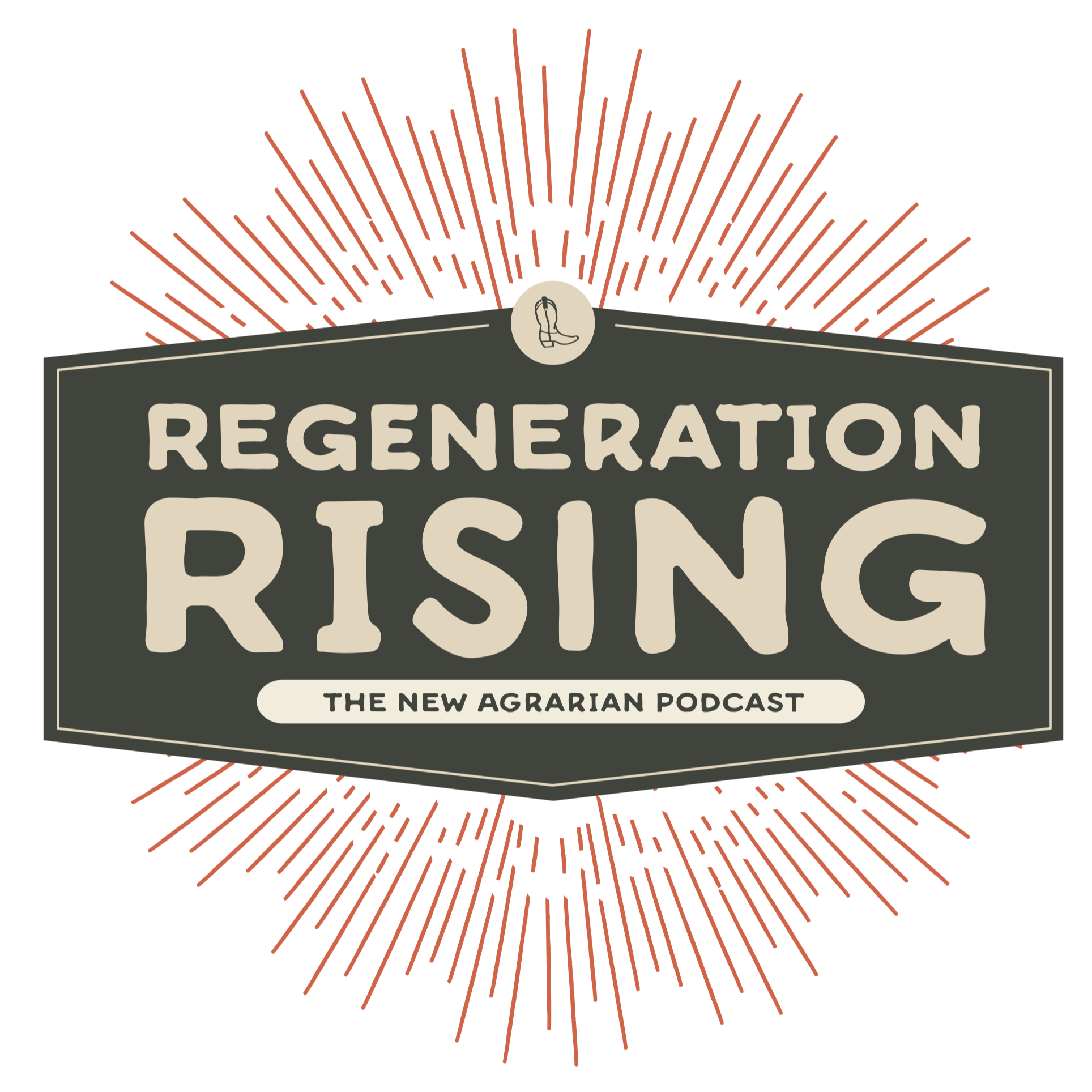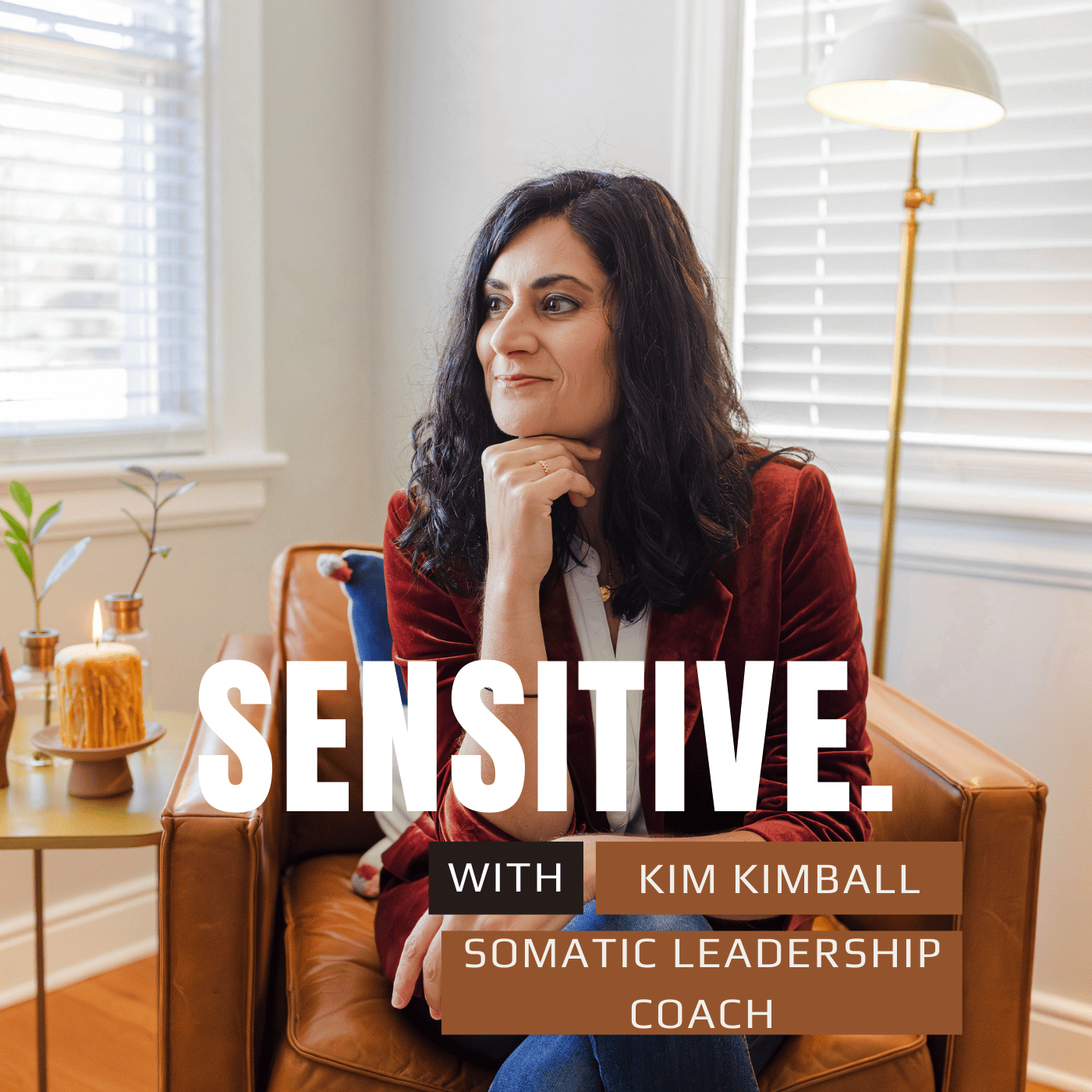
Less House More Resilience
Welcome to the Less House More Resilience podcast, where we delve into tiny and alternative living as a foundation from which we build our resilience in the face of uncertainty. I'm your host, Laura Lynch, and together we'll embark on a journey of exploring how alternative living arrangements allow us to activate our adaptable resources and build unconventional and multi-dimensional wealth.
Through captivating interviews, invaluable industry resources, and personal insights, this podcast aims to guide you towards a life of resilience. By unpacking a fuller definition of wealth and exploring unconventional living arrangements we will unlock a deeper connection to the things that truly matter. Join me in this time of change as we redefine the meaning of security and challenge the status quo.
Laura Lynch, CFP® ABFP™ is the founder of The Tiny House Adviser, Host of Less House More Resilience podcast and financial wellness guide at Alt American Dream. She guides others along the path of tiny and alternative housing.
Laura's journey to tiny house living began with her own quest for financial freedom and a desire to live a life that aligned with her values. After experiencing the emotional and financial burdens of conventional home-ownership, Laura and her partner Eric embarked on a journey to build their own tiny house, finding peace and liberation in their alternative living arrangement.
Laura holds a Master of Education (M. Ed.) degree and is a Certified Financial Planner Practitioner and Accredited Behavioral Financial Professional.
With years of experience in the financial planning industry, Laura has honed her expertise in helping clients navigate the complex world of personal finance. Her focus on alternative living arrangements, allows her to provide specialized guidance to those seeking financial resilience through downsizing and embracing a less conventional life.
Less House More Resilience
Divorce To Do List: Consider a Tiny Home
Use Left/Right to seek, Home/End to jump to start or end. Hold shift to jump forward or backward.
In this episode, Laura Lynch discusses the intersection of divorce and tiny living, exploring how alternative housing can provide solutions during transformative life changes. Drawing from her personal experience, she emphasizes the emotional and financial challenges of divorce, the importance of support systems, and the potential for personal growth in the aftermath. The conversation highlights the need for flexible housing options that align with individual needs during times of transition.
Go to thetinyhouseadviser.com
Laura Lynch (01:34)
Welcome to episode 113 of Less House, More Moola Podcast. I am Laura Lynch, your host. So I thought that this week we would talk about something that's on my mind right now, based on some work that I have been doing and just ruminating on the big D.
There's a song, I think I'm going through the big D and I don't mean Dallas. And so divorce and the intersection with tiny and alternative living is one that I see a lot when I look through other influencers feeds and see the type of people that are in tiny living.
I think that this is an interesting intersection and one that we can explore. What are the solutions that tiny or alternative living provide in this really pivotal juncture of people's lives? I experienced my own Big D back in 2009. And it was from there that I actually lived in my first small space. So not long after that in 2010, I signed a lease.
in Sarasota, Florida, on a 300 square foot garage top apartment. And it was sublime. I felt so at home in a small space. It felt like 100 % mine, like I never had to ask anybody else's opinion of anything that in that moment of recovery, truly.
I could just cut down my life to the bare necessities and focus on that journey and that healing process and on what was needed to get by without having to maybe strive for anything bigger or grander or more in alignment with what I had been working so hard on in the previous years. So I love
this idea of small living spaces as cocoons or chrysalises, places for us to nurse ourselves, take care of ourselves and find out what it is that we want to spread our wings into next.
And I've been doing some divorce analysis on some divorce cases. And as I'm combing through the financials of people in what is arguably one of the most stressful and also transformative parts of their lives, I'm reminded of how challenging it really can be to split households.
Everything from our tax code to our social norms to even mortgage applications, make some assumptions about how we are in this world in terms of single or couple and income sources.
It is really challenging to take that first step out on your own, especially if it wasn't your choice. If you weren't the one who wanted to move on in a different direction.
And I really, after all these years, after my big D, I don't have a lot of emotion around the concept like I did many years ago. I grew up in a
world in which divorce was.
frowned upon, I'll say. You were expected to find your person and be with that person for the rest of your life.
romance and courtships and all of that gets really messy when you're in the military. And when you're a young person, not even knowing who you are or maybe what you want in your life. I don't know how we were expected to make these lifelong decisions when we were maybe not even fully formed at that point.
I have this theory about maybe it made more sense to find that person that you were gonna live with for the rest of your life and partner with for the rest of your life. When our lifespans were 45. When we live much longer lives and we change so much and we evolve so much, it seems unreasonable to expect for two people at
20, 21, 22, 23, 30, 35 years old to find their one partner and to stay in alignment with that person given all the change that we experience in our lifetime and all the maturation that we go through.
And so now as I'm looking at these divorce cases that I'm working on and, trying to enable people to land around the corner, in the best financial position to launch off from, I am thinking about how that with housing costs being as challenging as they are for even well-incomed
couples that it is even more challenging when you are maybe saddled with some debt, maybe figuring out how you take care of your own needs or or those of you and your children. And you do it on a single income, especially for those who deferred their career in order to support the family goals.
And so this is where I think we see a lot of divorcees in tiny living. I've even had a divorcee or two on my podcast where a smaller living situation with less cost of living, lower housing cost was a really timely solution for them.
And so splitting those household costs in half means that we have to choose something different, but yet the housing stock that's available doesn't support single persons or persons post divorce or persons taking care of children alone. So this is where choosing something different than what society and housing industry has put in front of us can be.
a real solution. Of course, tiny and alternative living as we talk about incessantly is a little bit more challenging to figure out logistically speaking, where the tiny house can go, how to finance it, that sort of thing. But money is shifting around in times of divorce. And so folks in divorce can do
a lot of self-advocacy through themselves or through their attorneys to put themselves in the best position. And sometimes cash might be changing hands or there are certain mechanisms through the divorce process to allow for cash to show up. And so perhaps this is a moment to consider some other alternative to purchasing yet another 2000 square foot home.
with less income.
So I landed in my 300 square foot apartment back in And of course I stayed there for a season until I moved on to the next chapter of my life. But it was a really healing place to be in terms of allowing me to just nestle down into my own routine and schedule and needs and figure out who I was and where I wanted to go from there.
I spent some time networking in the local family attorney group there in Florida and I really posed to them that divorce is the turning of a page in the book; that it presents a blank page in front of us to rewrite a new story and how we handle the past pages and how we
treasure or trash or just sort of put them away for a while is part of the process of making that transition. Many of us go into our relationships with the assumption that they will last forever. And so it can be really hard to reconcile the loss of a section of one's history.
to reconcile the loss of stories that the other person isn't there to share anymore.
And also perhaps to reconcile with the pain that that relationship caused and come to terms with how we let that happen or how we didn't move on faster or how we just got used to things that weren't okay.
So a lot to be written in those blank pages at that juncture, at that moment. And we're not going to know in that moment what the vision for the future is necessarily. And we're not going to be able to see our future selves in that moment because everything is changing and everything is very emotional and there's a lot of unknowns. And that can be really challenging too, to sit with the unknowns and to sit with the change.
and to sit with that transformation as it's happening.
So that's why it can be really helpful to have support around. When I was just in the midst of my divorce, I called on a couple of different family members. The ones that I felt would be the least judgmental, the ones that would be able to sit with me in those moments and not ask me too many questions. And this was really healing to have.
folks that knew me for a long time around and folks that I knew cared about me. And so for those folks that are in that transition, it can be really a reminder of how valuable our connections, our family, relationships really are and how sustaining they are beyond what we necessarily notice day in and day out. But in those moments of transformation,
in those moments of pain and those moments of healing, having close ones around us can be very critical to being able to be in that space and not choose some numbing strategy or some exit ramp into not feeling what we're going through.
So.
I am calling attention to this solution, this idea around looking for a home that is truer to us and more easily acquired or more easily taken care of in times when we are on our own or about to be on our own. Because I think
that this, the timeliness of the solution when so many people are deciding to exit relationships and find a new future for themselves is really a way to not in a moment of extreme emotion and change to take on a whole lot more debt. And we
maybe are best served if our future lifestyle is not so taxing and if we can launch off in a new direction without having to then figure out well what do I do with this whole interim thing that I created for myself because on the other side of that change could be something completely different that
never existed before and so maybe having an additional level of flexibility or some additional financial freedom or cushion can be really helpful as we figure out who we are on the other side of the big D. If I go back
to 2007 or 2008 prior to my divorce. I don't know that I ever would be able to flash forward and imagine the life that I have now. And likewise, while I was in it, in the midst of that major change, I had no vantage point for the future.
I was just rehearsing the past over and over and over again. so luckily for me, I did not put myself in a spot where I immediately had a bunch more debt or was stuck or chained in a particular spot. Even my career was in a fluid moment.
I was really reorienting myself to all areas of my life. So maybe we can all think about options if we ever go through divorce and think about how the housing
that we choose as we go out on our own can really free us or hold us captive for whatever comes next after we rebirth into something that we can't yet imagine.
If you are going through some transition like this, I am here to help. So let me know if I can support you.
Thanks for being here with me at Last House, More Moola Podcast, continuing on with weekly episodes. Make sure you come back next week.
Podcasts we love
Check out these other fine podcasts recommended by us, not an algorithm.

Mud Talks
Adobe in Action
Regeneration Rising
Regeneration Rising
The Corporate Escapee
Brett Trainor
Breaking Down: Collapse
Kory & Kellan
Sensitive.
Kim Kimball
Optimist Economy
Kathryn Anne Edwards and Robin Rauzi
The Permaculture Podcast
Scott Mann
Down to Earth: The Planet to Plate Podcast
Quivira Coalition and Radio Cafe